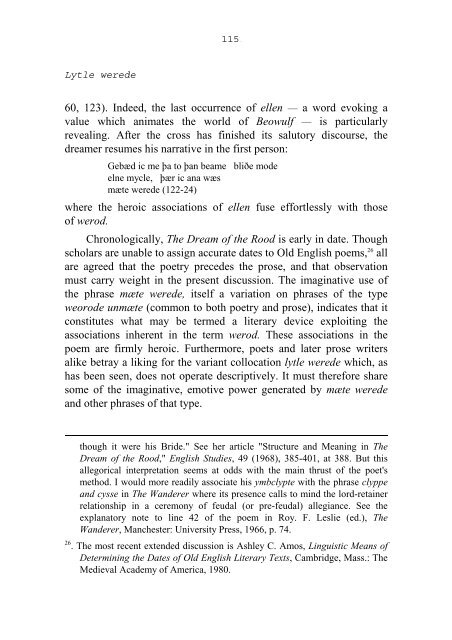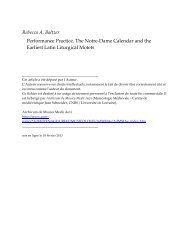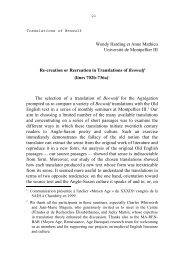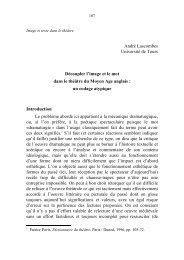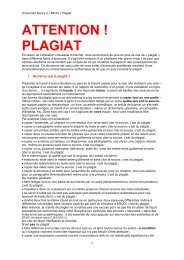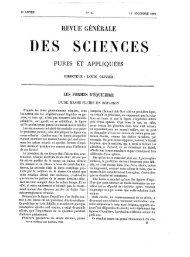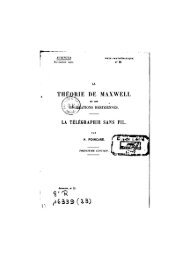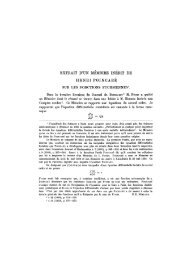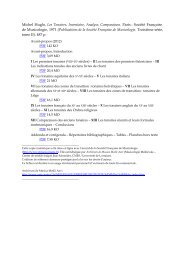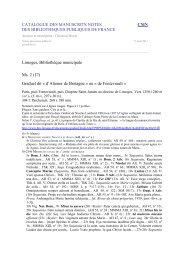Create successful ePaper yourself
Turn your PDF publications into a flip-book with our unique Google optimized e-Paper software.
Lytle werede<br />
115_(12U<br />
60, 123). Indeed, the last occurrence of ellen — a word evoking a<br />
value which animates the world of Beowulf — is particularly<br />
revealing. After the cross has finished its salutory discourse, the<br />
dreamer resumes his narrative in the first person:<br />
Gebæd ic me þa to þan beame bliðe mode<br />
elne mycle, þær ic ana wæs<br />
mæte werede (122-24)<br />
where the heroic associations of ellen fuse effortlessly with those<br />
of werod.<br />
Chronologically, The Dream of the Rood is early in date. Though<br />
scholars are unable to assign accurate dates to Old English poems, 26 all<br />
are agreed that the poetry precedes the prose, and that observation<br />
must carry weight in the present discussion. The imaginative use of<br />
the phrase mæte werede, itself a variation on phrases of the type<br />
weorode unmæte (common to both poetry and prose), indicates that it<br />
constitutes what may be termed a literary device exploiting the<br />
associations inherent in the term werod. These associations in the<br />
poem are firmly heroic. Furthermore, poets and later prose writers<br />
alike betray a liking for the variant collocation lytle werede which, as<br />
has been seen, does not operate descriptively. It must therefore share<br />
some of the imaginative, emotive power generated by mæte werede<br />
and other phrases of that type.<br />
though it were his Bride." See her article "Structure and Meaning in The<br />
Dream of the Rood," English Studies, 49 (1968), 385-401, at 388. But this<br />
allegorical interpretation seems at odds with the main thrust of the poet's<br />
method. I would more readily associate his ymbclypte with the phrase clyppe<br />
and cysse in The Wanderer where its presence calls to mind the lord-retainer<br />
relationship in a ceremony of feudal (or pre-feudal) allegiance. See the<br />
explanatory note to line 42 of the poem in Roy. F. Leslie (ed.), The<br />
Wanderer, Manchester: University Press, 1966, p. 74.<br />
26 . The most recent extended discussion is Ashley C. Amos, Linguistic Means of<br />
Determining the Dates of Old English Literary Texts, Cambridge, Mass.: The<br />
Medieval Academy of America, 1980.


